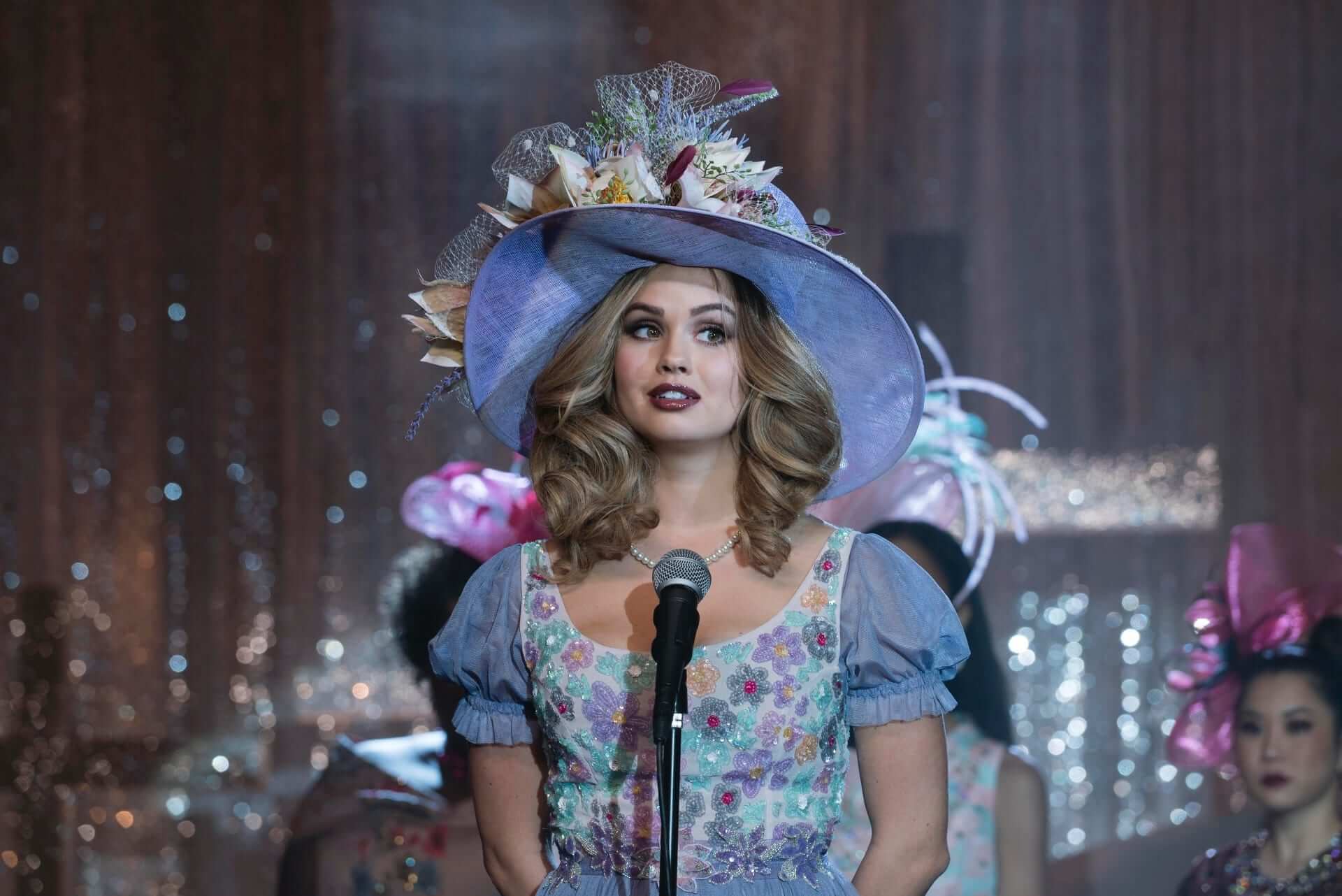by The Cowl Editor on January 31, 2019
Arts & Entertainment
by Catherine Goldberg ’20 A&E Staff
A popular Netflix original among teens and college students, Insatiable, aired this past summer on Netflix. Lauren Gussis created the comedy-drama series which stars former Disney Channel actress Debby Ryan. It is based on a 2014 article from the New York Times called “The Pageant King of Alabama” by Jeff Chu.
Ryan plays Patty Bladell, a teenage girl who was bullied at her high school for being overweight. However, the summer vacation before going back to school, she has a strange accident, resulting in her having her mouth wired shut. This causes Patty to go on a liquid diet for three months.
After she recovers and is able to go off of the liquid diet, she loses a ton of weight and comes back to her high school looking thin and glamorous. As a result, she seeks revenge on those who bullied her for being overweight throughout high school. Somewhere in between Patty’s dilemma, a civil lawyer and beauty pageant coach, Bob Armstrong (Dallas Roberts), notices Patty’s potential. After helping her pro bono in a court case regarding her accident, Armstrong sets out to turn her into a pageant queen.

The series has caused a lot of controversy among viewers with its “revenge body” storyline. The show has also posed problems regarding sexual assault and bullying. In one scene, these controversies are made evident. While being mentored by her beauty pageant coach, Patty gets upset and takes part in an eating competition. He states to Patty, “You eat a box of doughnuts to make yourself feel better… Emotional eating is a slippery slope.” This implies that Patty has some sort of binge-eating disorder, which incorrectly implies that obesity and binge-eating are the same.
In a BuzzFeed article, Jenna Guillaume writes about the problem of Patty wearing “fat suits” in flashbacks. She states, “The fat suits themselves are employed as a visual joke—because the idea that the thin actors inhabiting them could look so fat is just so ridiculous. ‘Fat suits’ dehumanize fat people, reducing them to nothing more than bodies to be reviled and mocked.”
Throughout the show, there is a common notion in the narration that “skinny is magic.” Some think that this concept is giving the wrong idea to the millions of young girls who watch it, especially with the prevalence of eating disorders in our generation.
Students at Providence College have attested to this. Sarah Kerrigan ’20 says, “The show sends the wrong message about beauty to young women.”
Overall, the show seems to have done well with ratings, and a new season is set to air in 2019. Although the show is controversial, people continue to watch, and fans are looking forward to the second season.
Comments are closed.
I’m overweight myself and have dealt with bullying and being unseen and unheard as a result. I’ve also lost over 50 lbs and see a radical difference as to how I’m treated by others. Being thinner isn’t the magic that I thought it would be. I have issues with the show but it has nothing to do with the issue of weight. Actors gain and lose weight all the time to portray whatever character they are supposed to be. On a tv show actors don’t have months to prepare and in this case, the fat suit is providing the backstory to visually show the bullying she endured. People are bullied for all kinds of reasons, being overweight is one of them. From a producer’s POV, it would be unhealthy and take too long for the actor to gain and lose that weight for a few scenes of a backstory. I can always tell when people haven’t watched Insatiable because they portray the show as promoting a “Skinny is magic” message it’s the title of an episode in which the character realizes that skinny isn’t magic. The message of the entire show is skinny isn’t magic and though the character believes that, she goes through a lot to find out that skinny indeed isn’t magic.